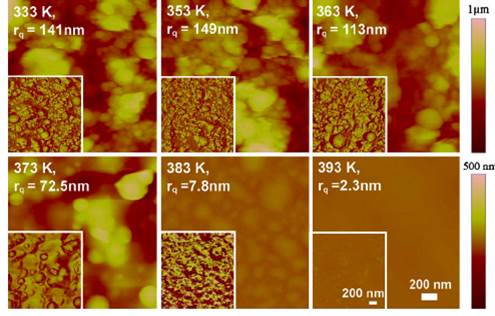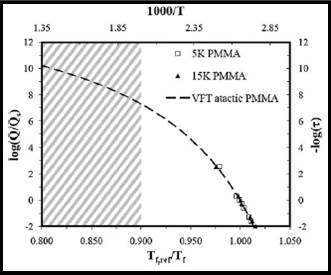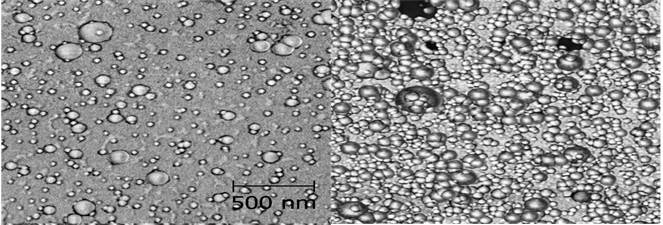
PCCM
researchers are able to form thermally and kinetically stable polymer thin
films with an enhanced glass transition temperature (Tg) and
high temperature kinetic stability against the glass-to-liquid transition via
laser deposition. The films are formed
by the buildup of nearly spherical nanoglobubles (above). The graph (below) demonstrates that
high cooling rates (Q) are achieved during the deposition process, resulting in
elevated Tgs. The image (above) illustrates the stability
of the nanostructured morphology, against coalescence, at temperatures well
above the
normal Tg of
350 K. In addition, the nanostructured
morphology is formed during the initial stages of deposition (bottom), as
globules are observed after 1 and 5 min of deposition.

